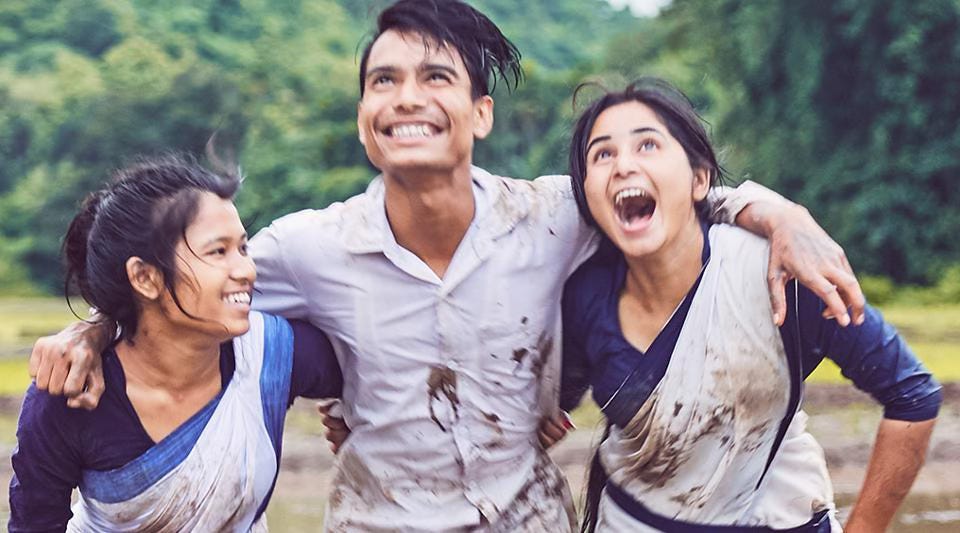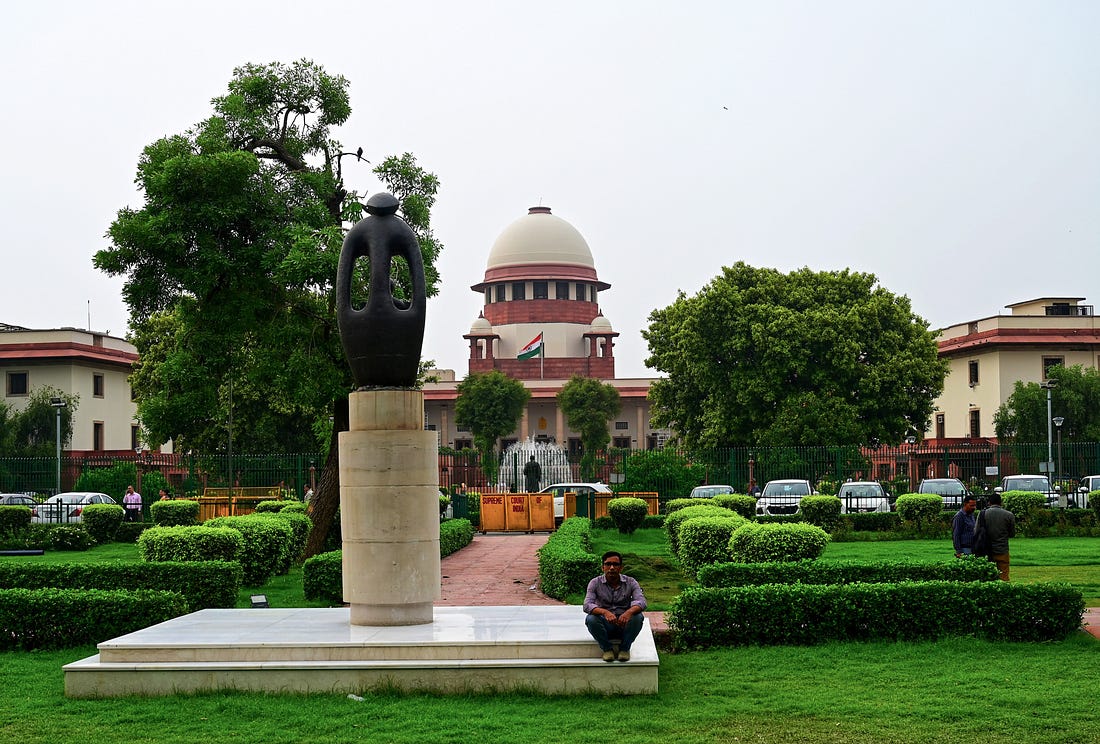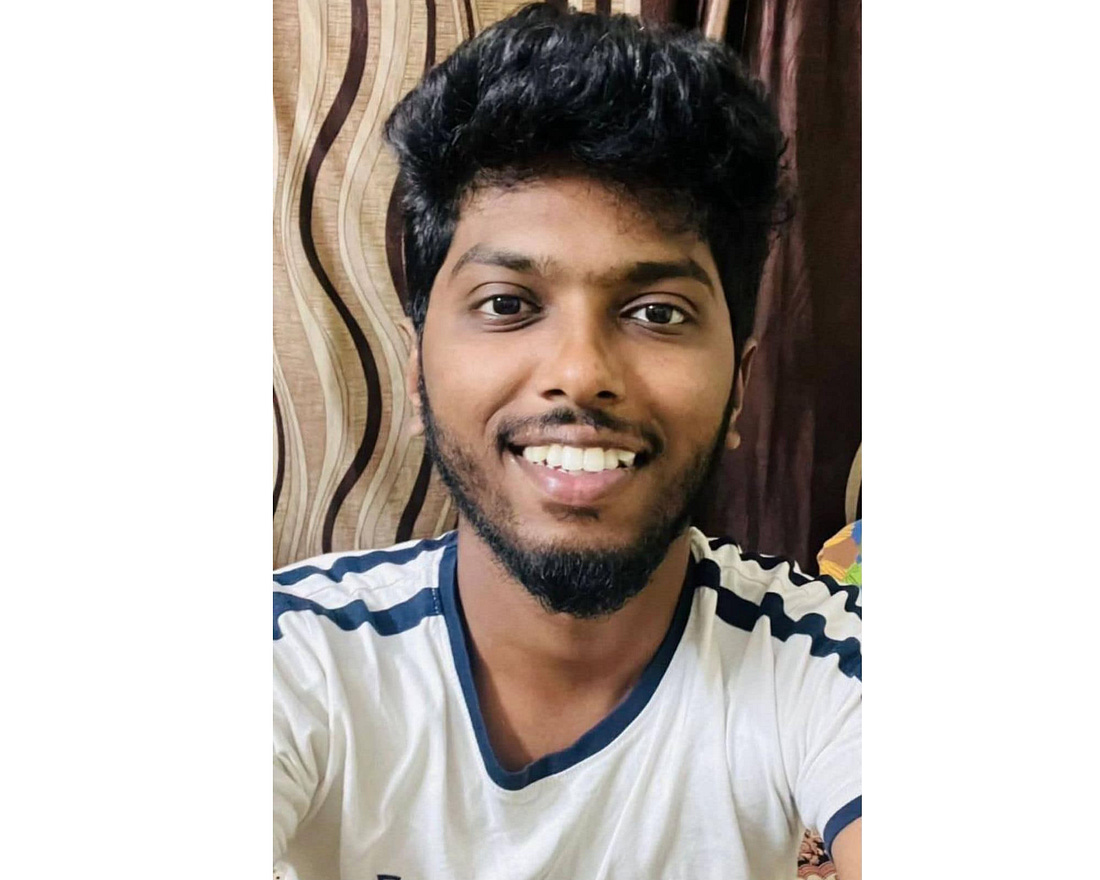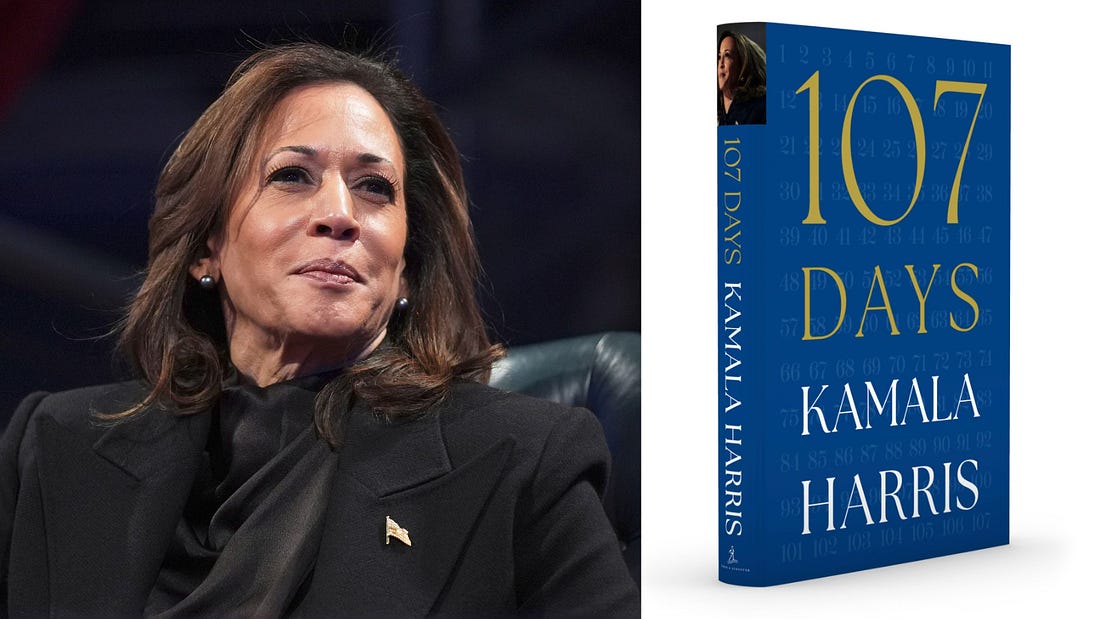💪 How a law to protect children was weaponized against consensual teen sexSex with a girl below the age of 18 is rape, even if it’s consensual.The big storyIt’s a story playing on loop from Guwahati to Allahabad, Delhi to Meghalaya. The plot line is more or less the same: Teenagers in love. He’s 18, 19, or maybe 20. She’s 17 or 16. Everything is going smoothly until her parents find out. Perhaps she gets pregnant. Perhaps someone sees them together. Perhaps she’s run off with him. But all hell breaks loose. Maybe he’s of a different religion or caste, or maybe they’re just angry at the daughter’s exercise of choice. They file a complaint of rape. In 2014, when his 17-year-old daughter ran off with the 19-year-old man she loved, her father filed a missing person’s complaint with the police. The police tracked her down to Ghaziabad where she told them she had married her boyfriend in a temple. No matter. He was charged with rape and sentenced to seven years in prison by a trial court. He appealed. Eleven years later, in February this year, Justice Jasmeet Singh of the Delhi high court finally acquitted him. The punishment handed out to him was a ‘perversity of justice’, the judge ruled. “It was a case of adolescent love and the physical relations were established consensually.” By law, the age of consent is 18. In other words, sex with a girl who is less than 18 years of age, even if consensual, amounts to statutory rape. The government’s own data, the National Family Health Survey-5 found that 39% of girls had sex for the first time before turning 18. This of course would include girls married off by their parents before the legal age. The survey doesn’t tell us of marital status, but it shows a large proportion of sexually active girls below the age of 18. For 80 years, the age of consent was 16. Then in 2012, it was raised, without explanation or rationale, to 18 under the Protection of Children from Sexual Offences Act (POCSO). And it is this increase of age that is increasingly being used by parents to punish the consensual sexual relationships of their daughters in a country where sex, particularly pre-marital sex, is taboo. “An increase in the age of consent violates the right to autonomy of children between the ages of 16 and 18 who have the ability to give mature consent to sexual activity,” argued senior advocate Indira Jaising who appeared last week as amicus curie: “To criminalize such an activity rather than addressing the issue of sex education, is arbitrary, unconstitutional and against the best interests of children as defined in law.” Hard factsThe evidence on how romantic relationships between teenagers are being criminalized is chilling: One in five boys and men charged with rape under POCSO are in romantic, consensual relationships. In one study, it’s one in four. A five-state study by the Centre for Child and the Law at the National Law School of India University that looked at 2,788 POCSO cases found that romantic, consensual cases made up 21.2% of cases in Andhra Pradesh, 15.6% in Assam, 21.5% in Delhi, 21.8% in Karnataka, and 20.5% in Maharashtra. Another study by Enfold Proactive Health Trust looked at 7,064 judgements between 2016 and 2020 by POCSO courts in Assam, Maharashtra and West Bengal to find 1,715, or 24.3%, were romantic cases. In nearly half, 46.5%, of these cases, the girl was married to the accused. The complainants in over 80% of these cases are parents and relatives. Only in 18.3% of cases was the complaint lodged by the girl on grounds of breach of promise to marry. Acquittal rates are, fortunately, high. When judges hear from girls in romantic relationships, 93.8% of cases end in acquittals, found the Enfold study. But the time taken from the filing of the police complaint to judgment by the courts can take up to three years leaving young couples, many of them already married, some with children, on tenterhooks. Looking for solutionsThe courts are increasingly voicing their concern about consensual teenage sex being criminalized. In 2019, the Madras high court noted that sexual relations among what’s known as “mature minors” was not unnatural and recommended a revision of the age of consent. The Allahabad high court echoed that view in October 2023 when it stressed that the fact of a consensual relationship borne out of love should be of consideration while granting bail. In February 2024, the Karnataka high court quashed the criminal prosecution of a 20-year-old man who had married a 16-year-old girl and even had a child with her. But court verdicts can go the other way. In 2019 in Maruthupandi v State, the Madras high court stuck to a literal interpretation of the law and stipulated that the penalties are attracted even though the relationship was consensual. In May this year, the Supreme Court delivered its verdict on a case where the man was 25 and the girl only 14 when she ran off and married him in 2018. They subsequently had a daughter, and the girl, now a woman, was fiercely protective of her small family and wanted to continue the relationship. The apex court, upheld the man’s conviction under POCSO but declined to sentence him. To send him to jail for the 20 years that he could have got, the court noted would only further harm the woman and her daughter. I wrote about that verdict in an earlier column here. Nobody disputes the need for POCSO in a country where a 2007 government survey found 53% of children had faced some form of sexual abuse. The need to protect children is urgent and real. But the blanket criminalization of all sexual relationships with a girl under 18 is a travesty of the law that is placing pressure on an already over-burdened criminal justice system. A case-by-case approach that leaves justice to the discretion of judges cannot remain the solution. Indira Jaising recommends a “close in-age exception”. The statutory age of consent would remain 18, but a close-in-age exception—where both adolescents are aged between 16 and 18 and where sex is consensual—would “preserve the protective intent of the statute while preventing its misuse against adolescent relationships that are not exploitative in nature”, she said. Also read:Going placesThey called it the “clash of generations” with 19-year-old Divya Deshmukh facing off against 38-year-old champion Koneru Humpy at the FIDE Women’s World Cup 2025. In the end it was the Nagpur teenager who overcame the veteran in a tie-breaker after two classical games ended in draws. Her triumph is a sign of “goalposts shifting” in a “world which sees few women challenging the top male players.” Read more here. News you might have missedPrajwal Revanna reportedly wept as a special court in Bengaluru sentenced him to life imprisonment and a ₹11.5 lakh fine for raping a 48-year-old woman who worked as a labourer at his family farm. The case is the first of four that have been filed against the former Janata Dal (Secular) MP from Hassan. In her testimony, the woman said Revanna had raped her twice and filmed the assault. When the video went viral, she was so distressed that she attempted to kill herself, special public prosecutor B N Jagadeesha told the court. Revanna had tried to kidnap the woman to prevent her from testifying, he said. News reports of the alleged sexual perversions of Revanna, grandson of former prime minister HD Deve Gowda, broke on the eve of the general elections of 2024 when pen drives purportedly featuring Revanna in 2,796 videos sexually assaulting some 400 women surfaced. The 33-year-old claimed the videos had been doctored but fled the country. On his return he was arrested and has been in prison since May 2024. A special investigation team has submitted a 118-page chargesheet and confirms the man in the video as Prajwal Revanna. Not his qualifications as a software engineer nor job with Tata Consultancy Services was enough to make Kavin Selva Ganesh’s girlfriend’s parents approve of him. He was Dalit, they belonged to the dominant Maravar community. On Sunday when Kavin went to meet his girlfriend, S Subhashini at a clinic where she works, he ran into her brother, Surjith who took him on his two-wheeler on the pretext of needing to talk to him. Then he allegedly hacked Kavin to death with a sickle. The hate crime took place in Tirunelveli district, Tamil Nadu, which has a 90% literacy hate. The 24-year-old Surjith has surrendered to the police and both parents, employed as police sub-inspectors, have been named as co-accused on charges of inciting the crime. Kavin’s family has, at the time of writing, refused to accept his body and is demanding legal action against Surjith and his parents. And the good news…. In a bid to improve women’s workforce participation, the Delhi government will, for the first time since 1954, permit women to work the night shift in shops and commercial establishments, should they choose to do so. Safety requirements will require employers to make arrangements to drop women home safely. But the option of choosing their shifts Field notesWhat’s in a name? Plenty if you’re female, Japanese, married, and a professional. The only country in the world that legally requires married couples to share the same last name—with women far more likely to adopt their husband’s last name after marriage—women face an inadvertent penalty with a gap between their professional and legal names. This is particularly true for women scientists in international collaborations and publications, finds a survey of over 7,582 people in science and engineering of whom 2,344 were women. More here.
News from elsewhereHer plans for a 2028 run as yet undeclared, Kamala Harris has announced a memoir of her 2025 campaign run. To be released on September 23, 107 Days, is a “behind-the-scenes look at my experience leading the shortest presidential campaign in modern history,” the former vice president announced on X. Interestingly, to give the memoir a novelistic feel, Harris is working with Geraldine Brooks, a Pulitzer-Prize winning novelist. The audio book will be narrated in Harris’s voice. More here. China will offer subsidies to parents to the tune of $500 per child under three years of age in a bid to stave off its declining fertility. Experts predict that what was once the world’s most populous nation (India holds that honour now) could be looking at a population of 800 million by 2100 from its present 1.4 billion. BBC has more here. That’s it for this week. If you have a tip, feedback, criticism, please write to me at: namita.bhandare@gmail.com, or reply to this mail. Edited and produced by Shashwat Mohanty. |








